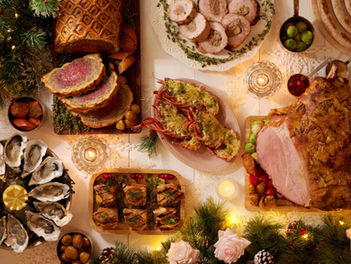Hong Kong enforces strict 'third wave' restrictions
- Asia Family Traveller

- Jul 29, 2020
- 2 min read
Updated: Jul 30, 2020

A government worker walks along a deserted restaurant strip in Stanley, Hong Kong Island.
Hong Kong’s strict new coronavirus measures kicked-in on July 29 with a complete closure of all restaurants and cafes in the city.
However, after a chaotic first day with city workers having to take their lunch breaks outdoors in searing temperatures, the government allowed eateries to reopen between 5am and 6pm from July 31. Additional limitations mean there must be no more than two diners sitting at any one table and each venue must operate at no more than 50% capacity.
Face masks are now mandatory in all public places throughout the city, including when exercising. Public gatherings are limited to two people with stiff penalties for anyone found in breach of the regulations.
Public swimming pools and beaches which were first closed on July 15 remain shuttered, as well as country park facilities such as barbecue sites and campsites. Sports centres, tennis courts, sports grounds and water sports centres also remain out of bounds. Hairdressers and barbers shops are allowed to operate, but spas and beauty salons must remain closed.
The new measures have hit the struggling food and beverage sector hard and the catering industry has now called on the government for a HK$8 billion bailout. It is expected the sector will be hit with losses of up HK$7 billion in August alone.
The territory had enjoyed a relatively low infection record until cases surged in July as a ‘third wave’ hit the city.
A first round of restrictions to limit the outbreak introduced in mid-July meant the city’s dining spaces were able to operate until 6pm and from then on offer a takeaway service. As of July 31, they could resume this arrangement.
However, the hospitality industry predicts that this will not be enough to make up for the massive drop in revenue. According to online restaurant guide Openrice, more than 250 Hong Kong restaurants went out of business in June.
Meanwhile, Hong Kong’s secretary for Food & Health has admitted that the government’s quarantine exemption policy may be behind July’s surge in cases. According to the city’s Security Bureau, more than 200,000 people were exempted from the compulsory 14-day quarantine on entering Hong Kong between February and May. There were exemptions for 33 types of inbound travellers from mainland China, Macau and Taiwan, including cross-boundary goods vehicle drivers, specially designated business people and government officials. Aircraft crew and cargo ship personnel were also allowed unimpeded entry.
The government said that the arrangement was necessary to ensure the ‘normal operation’ of the city, but has now tightened its policy on sea and air crew arrivals.
Hong Kong registered a new daily record of 149 new infections on July 30.



















AV在线看 AV在线看;
自拍流出 自拍流出;
国产视频 国产视频;
日本无码 日本无码;
动漫肉番 动漫肉番;
吃瓜专区 吃瓜专区;
SM调教 SM调教;
ASMR ASMR;
国产探花 国产探花;
强奸乱伦 强奸乱伦;
代发外链 提权重点击找我;
游戏推广 游戏推广;
Fortune Tiger Fortune Tiger;
Fortune Tiger Slots Fortune…
谷歌马甲包/ 谷歌马甲包;
谷歌霸屏 谷歌霸屏;
מכונות ETPU מכונות ETPU;
;ماكينات اي تي بي…
آلات إي بي بي…
ETPU maşınları ETPU maşınları;
ETPUマシン ETPUマシン;
ETPU 기계 ETPU 기계;
代发外链 提权重点击找我;
google留痕 google留痕;
Fortune Tiger Fortune Tiger;
Fortune Tiger Fortune Tiger;
Fortune Tiger Slots Fortune…
站群/ 站群;
万事达U卡办理 万事达U卡办理;
VISA银联U卡办理 VISA银联U卡办理;
U卡办理 U卡办理;
万事达U卡办理 万事达U卡办理;
VISA银联U卡办理 VISA银联U卡办理;
U卡办理 U卡办理;
온라인 슬롯 온라인 슬롯;
온라인카지노 온라인카지노;
바카라사이트 바카라사이트;
EPS Machine EPS Machine;
EPS Machine EPS Machine;
EPS Machine EPS Machine;
EPS Machine EPS Machine;